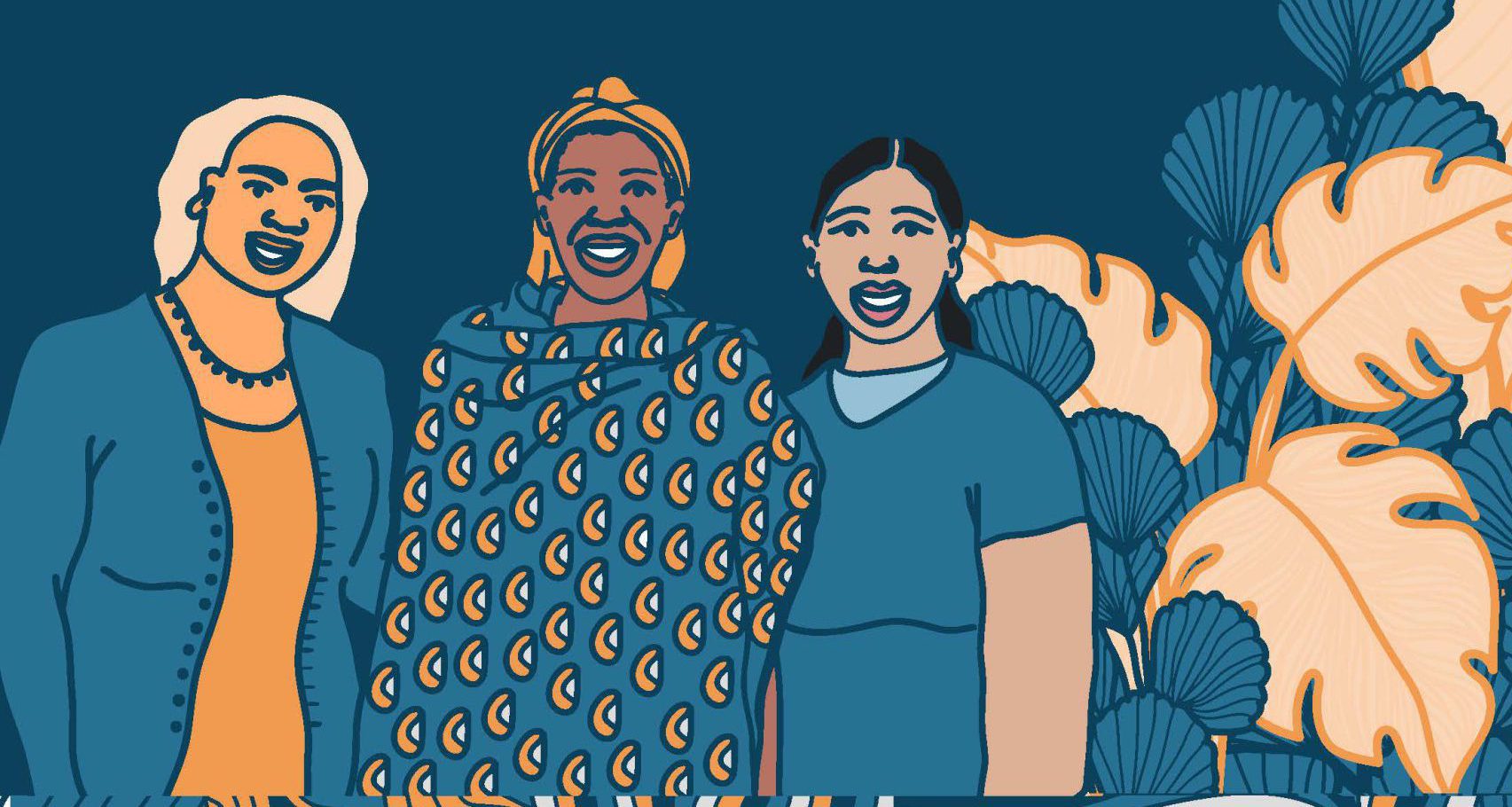
‘We are using women as the entry point to peace, but this peace is for everyone – Tonni Brodber, Head of the WPHF
During this year’s Women, Peace and Security week, NIMD worked alongside partners to shed light on the leadership, challenges and support systems for women peacebuilders globally. This included the LEAP4Peace consortium event where we put the experiences of women peacebuilders in Myanmar front and center. Read on for more takeaways from this year’s WPS week!
Resilience Amidst Challenges
At NIMD, we witnessed the remarkable resolve of women peacebuilders working towards sustained peace. During the WPS week, we invited Women Peacebuilders from Myanmar to share their experiences as part of our LEAP4Peace event; read their stories here. During the event, we were reminded that despite escalating violence and repressive conditions, their commitment to safeguarding and empowering communities stands strong, again showing the transformative power of women in peacebuilding.
Read the full LEAP4Peace paper and the country papers about Burundi, Colombia and Myanmar here.
Beyond Barriers
This year’s discussions underscored that rather than focusing solely on barriers, women peacebuilders are driving creative and transformative approaches in the face of immense challenges. In a joint event with the Dutch Permanent Representation, we emphasized the need to place women at the heart of peacebuilding infrastructure.
Diana Maria Salcedo Lopez from LIMPAL shared during the event,
“women bring unique perspectives on reconciliation and social justice,”
going on to say that “women’s organizations like ours have remained vigilant, holding the government accountable, we are working to introduce women’s perspectives and new point of view on the structural problems of… reintegration, advocating for land rights, and pushing for reparations and justice for victims of sexual and gender-based violence.”
When women—particularly those from marginalized communities—lead in peacebuilding, they drive justice-centered solutions that address conflict at its roots and enable lasting social change.
Flexible and Responsive Funding
We also highlighted the best practices of some of our international community partners when responding to the call for long-term and flexible funding that can adapt to local needs and changing contexts.
For instance, the Netherlands provides support to civil society, recognizing civil society’s role as a critical friend and partner in building inclusive societies. Through initiatives like Women, Peace and Security and Power of Voices, the Netherlands supports civil society organizations to amplify citizens’ voices, promote accountability, and strengthen the social contract. Technical and financial support is essential to consolidate women’s movements and civil society to engage, contribute and influence peacebuilding for a more sustainable and inclusive peace.
We also heard from the Women’s Peace and Humanitarian Fund (WPHF), whose demand-driven, flexible support is available to women’s civil society leaders and their organizations in conflict and crisis settings. They ensure that critical interventions can happen when and how they are needed most, facing shifting dynamics and escalating backlash against women’s rights and gender equality. The new Head of the WPHF, Tonni Brodber, reminded us that “peace is not a project; it is an ongoing set of work”, stressing that we cannot expect revolutionary change in a short timeframe and highlighting the need for sustained funding and commitment from the international community.
Coming together
Capacity-strengthening goes beyond skill development; we heard how training spaces have become hubs for solidarity, hope, and resilience, particularly among women facing substantial risks. The women also find each other in transnational networks that provide crucial platforms for women peacebuilders to exchange knowledge and come together.
Moving forward, the courage and adaptability of women peacebuilders we observed demonstrate the critical role of grassroots women in humanitarian aid, conflict monitoring, and advocacy for systemic change. As the intensity of these challenges grows, amplifying their stories and insights is more essential than ever.
Read more about our work as NIMD on supporting Women in Peacebuilding processes here. Did you miss our new LEAP4Peace publication, please head here.
Looking Back on Geneva Peace Week
During Geneva Peace Week, the Women Peace and Humanitarian Fund (WPHF) launched the second phase of the Rapid Response Window (RRW). The Rapid Response window set up 5 years ago by the WPHF, is a response to the shamefully low participation of women in peacebuilding processes almost 25 years after the UN Security Council Resolution 1325 on women, peace and security was approved. The RRW provides flexible and responsive funding to local organizations and women peacebuilders and remains instrumental in promoting women’s participation and influence of peace process and the implementation of peace agreements.
Through the RRW, NIMD has worked with local CSOs and women leaders to enhance their participation in peace processes in Colombia, Guatemala, Venezuela, Mozambique and Ethiopia. For a more detailed insight into the work made possible through the Rapid Response window so far, please click here.
Now as we launched phase two the international NGOs working through the Rapid Response window gathered together to Reflect on achievements and insights from Phase one. Stay tuned for Phase Two!
